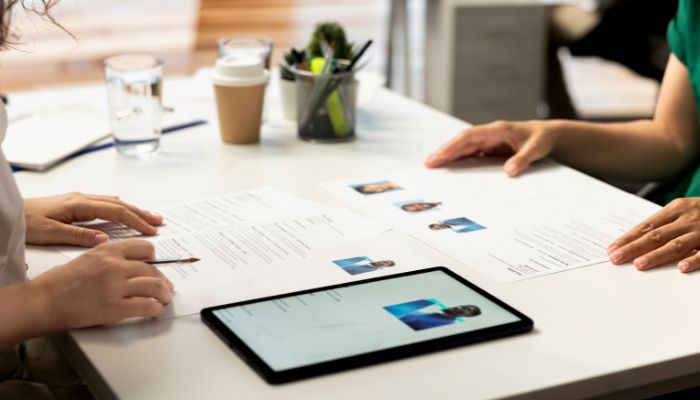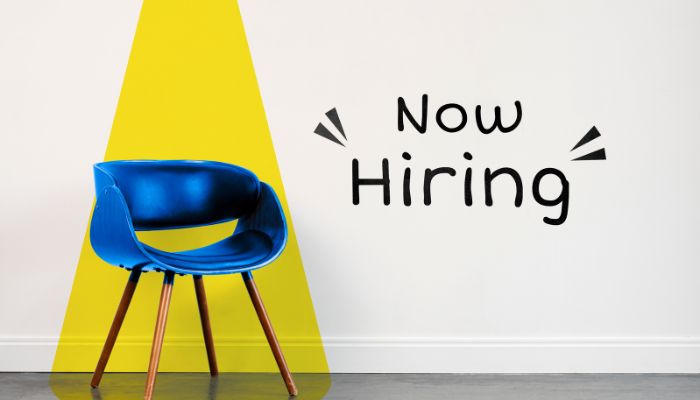Panel interviews are one of the most successful ways of examining talent and finding the right fit for a company’s needs. This is why panel interviews have become such a hit amongst employers in the jobs market to find the most incredible talent from the available talent pool. And the definition of a panel interview is exactly what its name suggests. It involves a panel of interviews sitting across the table of an interviewee to test their skills and experience. The best thing about this form of interviewing is that it allows a company to have an open dialogue with candidates in an environment different from that of the usual interview.
There are several reasons why a panel interview appears so appealing to organizations. These interviews allow organizations to get their critical representatives involved in hiring. And they can push successful candidates further in the process without having to schedule any more meetings. And just like other hiring methods, panel interviews also have their advantages, which may change according to the hiring needs of different organizations. Having said that, if they are not used in the right ways or situations, they will not be able to offer you the benefits that are usually associated with them. So, before an organization chooses to take the panel interview path, it needs to consider its hiring needs, whether or not it will be suitable for a particular situation, and whether or not it will help them deliver exceptional candidate experience.
You might also be interested to read: Tracking Hiring Metrics – An Indispensable Tool
Once organizations determine the panel participating in these interviews, the panel needs to prepare well for it, or they will be found wanting. Panel interviews will only deliver the desired results if everyone on the board has done their homework. They need to properly sift through candidates’ profiles and consider their social media and psychometric profiles. This information accumulation is essential because the panel will only be able to formulate the right questions and structure them correctly when they know what they have to ask. For this, everyone on the panel should have access to the application sent by a candidate along with their CV.
It is also essential for organizations to realize that a one-on-one or panel interview isn’t a one-way process. Candidates and their questions are as crucial to the success of the interview. And in the current job market, candidates have become more concerned about the stability of their jobs. So, the panel needs to prepare well to field these questions correctly. Like organizations, candidates are also looking for the right fit for their needs. Organizations should never discount this.
As much as the panel needs to prepare for understanding a candidate’s profile, they can’t undermine the importance of knowing thoroughly about the role they are hiring for. They need to acquire information about the position from all the different perspectives. And the panel members should discuss amongst themselves the questions that each one would be asking the candidate coming through the door.
What questions can the panel ask candidates? The questions could vary depending on what a panel member is trying to learn from the candidate. In general, questions should be asked keeping in mind candidate experience and suitability for a particular role. A standard scoring sheet available to all the panel members should be made available. Based on how a candidate responds to a question, the panel can use the scoresheet to mark body language, knowledge, answering style, and other factors. The panel interview is also a great way of figuring out whether or not the candidate is interested in the job role, company, product/services, and other things.
The panel can ask questions to determine a candidate’s competency and how effectively they will be able to perform and succeed in the role. These questions should be strictly tailored around the job role and the candidate’s experience. Then some questions will help the panel find out whether or not a candidate aligns with the vision and values of the company. These questions are fundamental to establish whether or not a candidate will be successful in a job role.
The panel can also ask some questions that will provide them with a deeper understanding of the process of a candidate or their opinions on a particular topic. These theoretical questions make the panel understand how candidates react in a specific situation. Panel members can also ask leading questions to lead a candidate to answers that they want to hear. These questions can help the panel determine the true intentions of candidates. These questions are usually based on the specific statement in the CV of candidates.
There are several benefits of using panel interviews instead of one-on-one and other forms of interviews. Panel interviews help organizations limit bias as the people making up the panel come from different backgrounds. As opposed to an individual interviewer, a committee comprising other departments, positions, age groups, seniority levels, and genders is less likely to make biased decisions.
A panel of interviewers can develop some of the best questions to ask candidates. Panel members can sit before the interview and discuss amongst themselves the most compelling questions that will help them decide whether a candidate is suitable for a job role or not. Panel interviews also take much less time. They can bring down the time consumed in the hiring process significantly. In addition, they also help in understanding a candidate’s ability to deal with group dynamics.
References:
- The Pros and Cons of a Panel Interview | Glassdoor | July 19, 2021
- The ins and outs of effective panel interviews | HR Zone | Shaun Simmons | 24th Oct 2014
You might also be interested to read:






